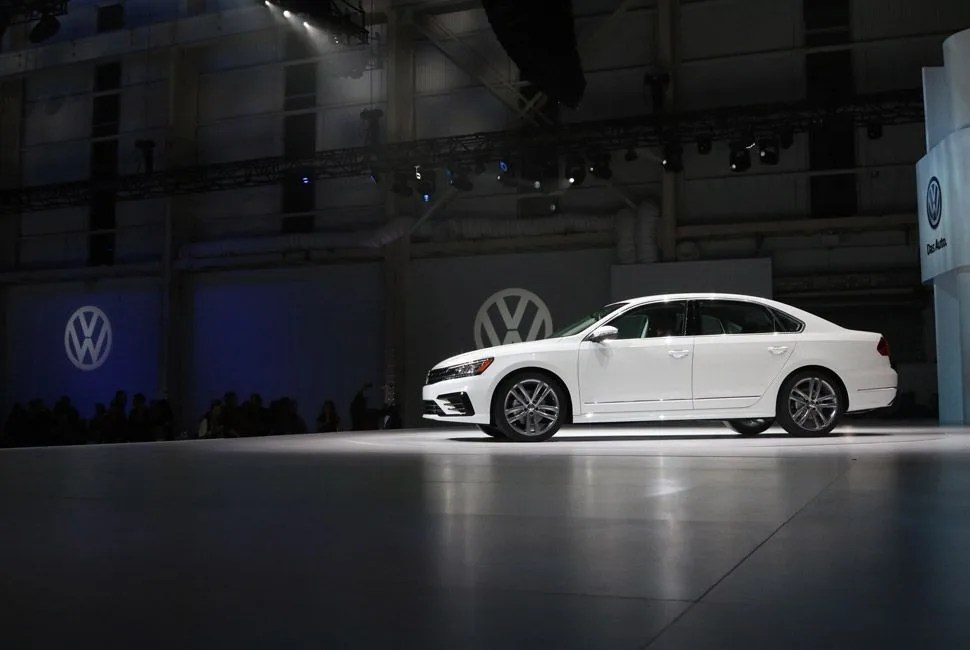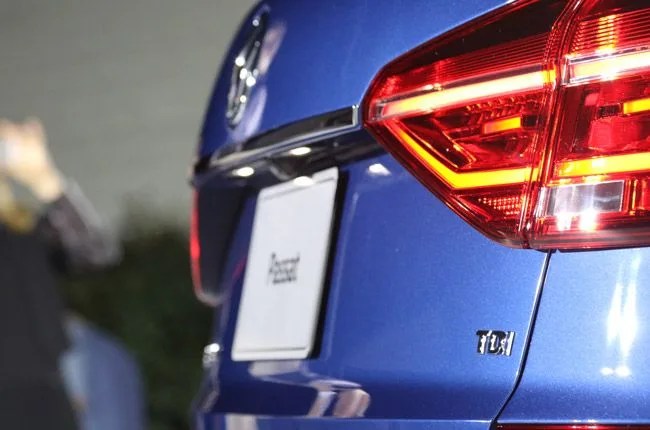Volkswagen wanted the reveal of the new Passat to be an upscale, amiable event, emphasizing the importance of the Passat to the US market and the US market to VW. It was held at a warehouse in the Brooklyn Navy Yard. Lenny Kravitz was there. But no amount of party lighting and music could conceal the fact that the new Passat was overshadowed by the elephant in the room. As soon as VW’s US CEO Michael Horn took the stage, he addressed the issue: “As you have seen since Friday, the EPA has issued a statement that we at the VW Group have manipulated software in our TDi diesel models and violated emission standards.”
The frankness continued. “Let’s be clear about this. Our company was dishonest with the EPA, and the California Air Resources Board, and with all of you. In my German words, we have totally screwed up.” That last line garnered a little forced laughter from the crowd. But aside from the canned responses, profuse apologies and assurances that “this company will do what needs to be done to make things right,” no new info came to light on Volkswagen’s wrongdoings.
The wrongdoings in question: Volkswagen cheated the EPA tests through software manipulation. When cars are tested for emissions they are put on a dyno. When this happens the drive wheels (the front wheels, in VW’s case) move, but the other set remains stationary. Modern cars will sense this as some sort of mechanical issue and it will usually engage some sort of traction control, so for cars to operate properly on the dyno a “Test Mode” is enabled.
VW exploited this: when a car was put into test mode, the car’s ECU would adjust, allowing for fewer emissions. The public is still in the dark about how they lowered the emissions, but the result was a passing score. So, in tests the cars met EPA standards — but when Test Mode wasn’t engaged, the cars were putting out anywhere from 10 to 40 times the acceptable amount of Nitrogen Oxides (NOx). Not only is that a significant amount of pollution, but it also completely devalues what TDi cars stood for.
Not only is that a significant amount of pollution, but it also completely devalues what TDi cars stood for.
Volkswagen has been on the forefront of proving the worthiness of the diesel-powered car, billing it as an alternative to other environmentally sound cars like hybrids and electric cars. In fact, the company ran an extensive ad campaign this year that went to dispel the “old wives’ tales” about diesels, showing how their diesel cars could be fun and deliver great MPGs while being clean. So much for that.
Diesels have had a bad reputation since the cataclysmic failure that was the diesel-powered Oldsmobile 88 — a slow, dirty and inefficient attempt by GM to bring diesel into the mainstream. That car singlehandedly soured the US public’s opinion on diesel power. Volkswagen was integral in selling the US on diesels — in August of this year, TDi cars made up nearly a quarter of the brand’s US sales. But ultimately VW advertised a lie — which hasn’t sat well with the public — and with the growing popularity and refinement of hybrids, electric cars and even hydrogen cars, diesel’s fate may be sealed here in the United States.

